Greetings lovers of beautiful pieces of architecture! Today I would like to share a tour I took a few days ago through the Boulevard de la Virgen de la Consolación de Táriba and the Parish House, it is like discovering what hides behind this imposing Basilica. Come with me to discover it.
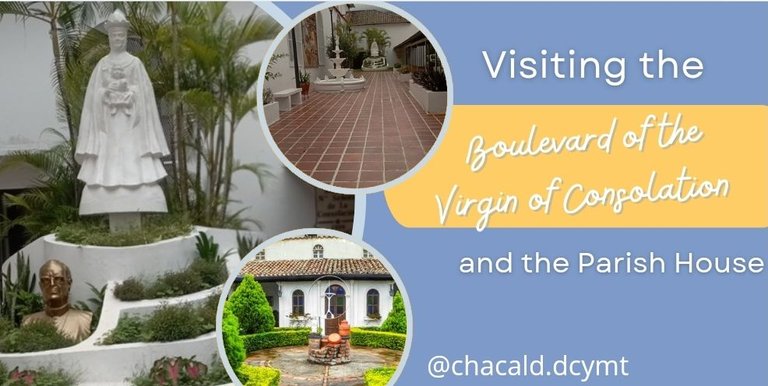
It all started because my 4 year old daughter wanted to visit the church. She is a very naughty little girl and while the faithful were at mass, she was running all over this big church.
They let her pass through a huge courtyard and while she was running around I took pictures to tell you about the beautiful structure behind the basilica.
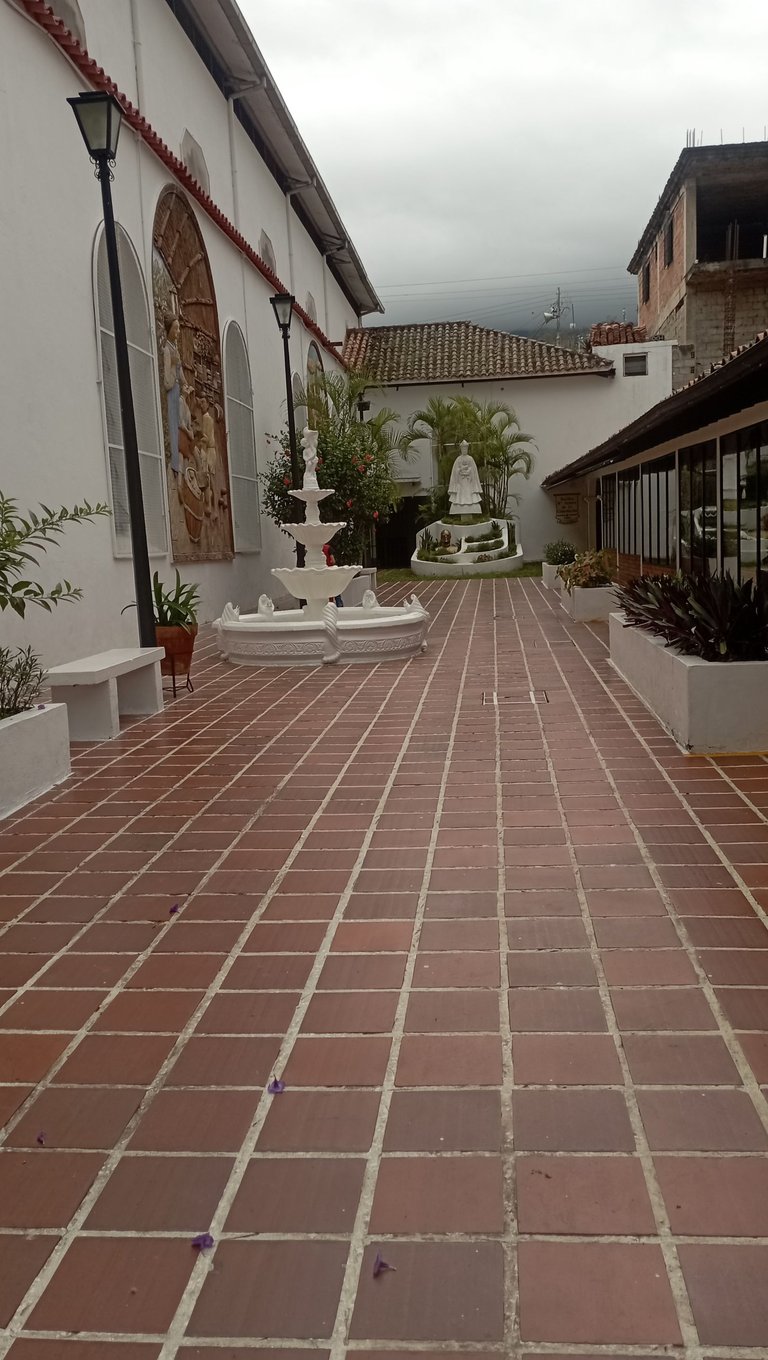
A Boulevard that used to be open to the public. The believing people, which in this city is the majority of the population, came to leave to the Virgin some personal objects as fulfilled promises. The quantity of objects gave the idea to open a museum and this Boulevard is the one that shelters all those relics in glass showcases.
On the left side of the long corridor we see some beautiful 3D murals that represent the story of how the Virgin image appeared on a piece of wood.
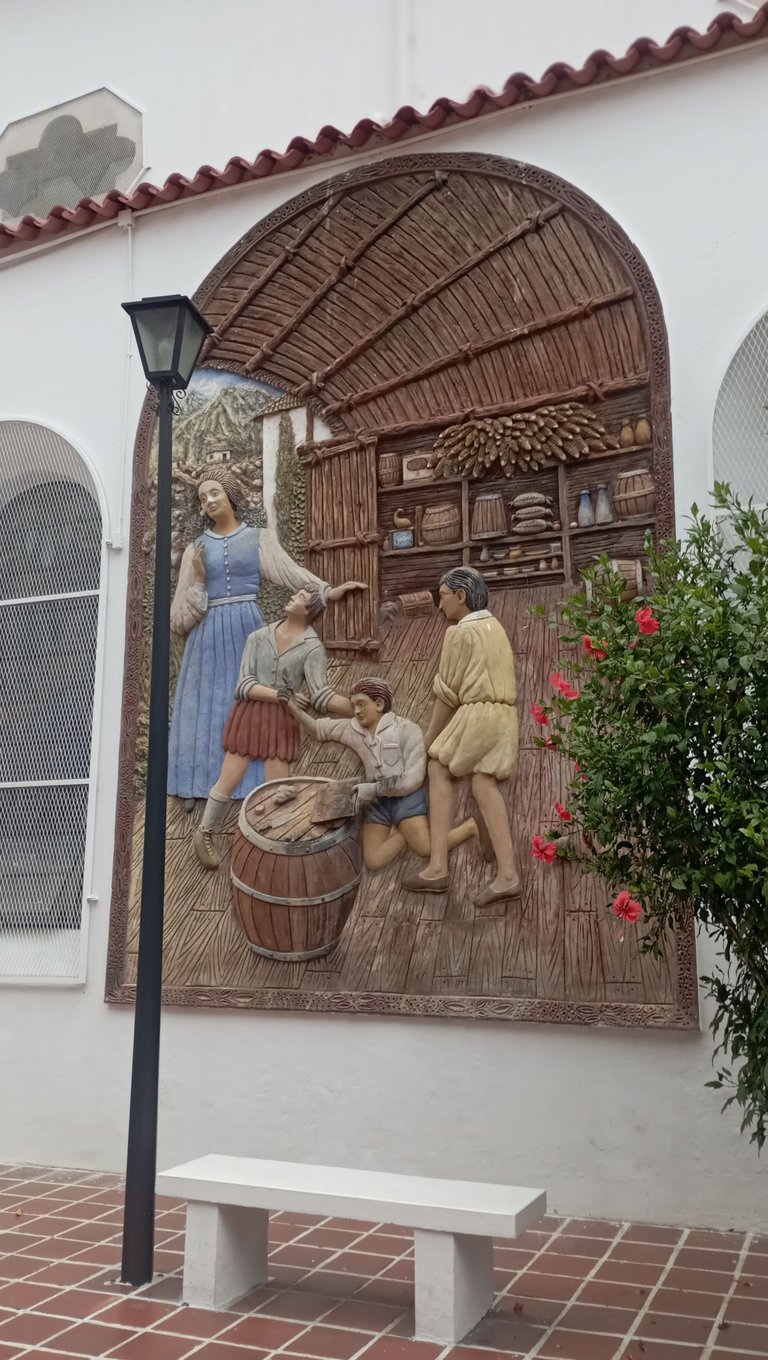 | 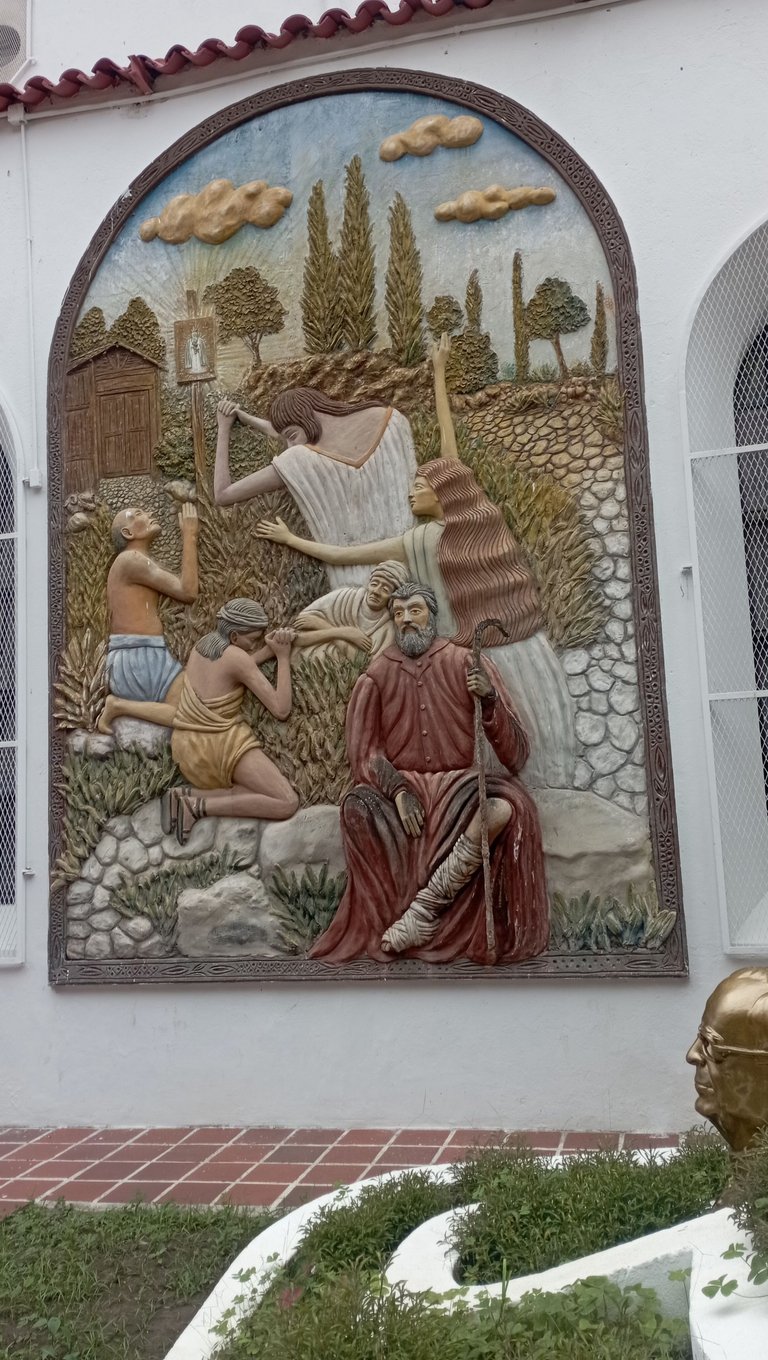 |
|---|
I love the careful details that the artist used to create these murals. This work, in which fine cabilla, cement, stone and plaster were used, is one of the many jewels that the Basilica of Tariba holds.
The planters, the fountain, the glass windows on the right side, the lanterns, the monument of the Virgin with the bust of the priest who had the initiative to create the Boulevard. Everything is so perfectly integrated in this place.
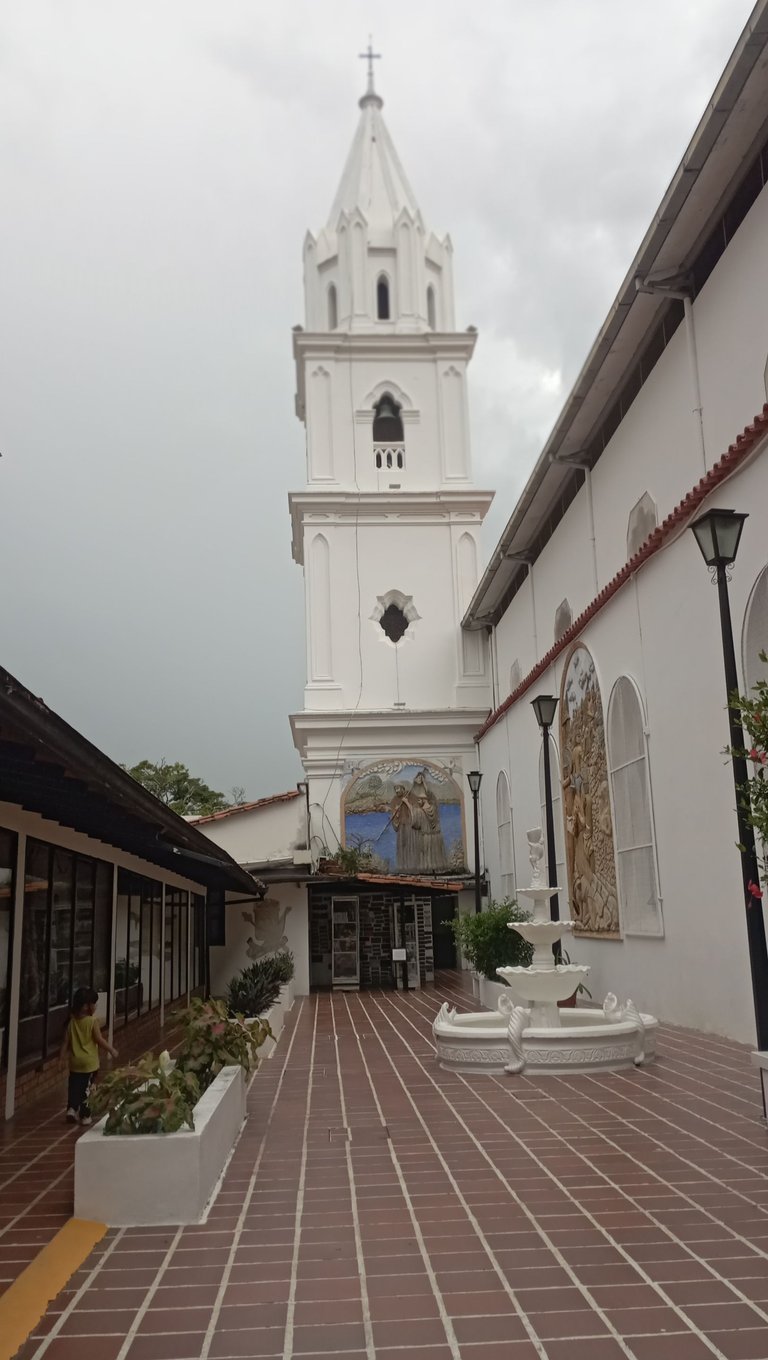
Going down a short flight of stairs, we arrived at the Parish house, my daughter was looking for the church cat that seemed to be calling her. I had never had the opportunity to enter this beautiful house before.
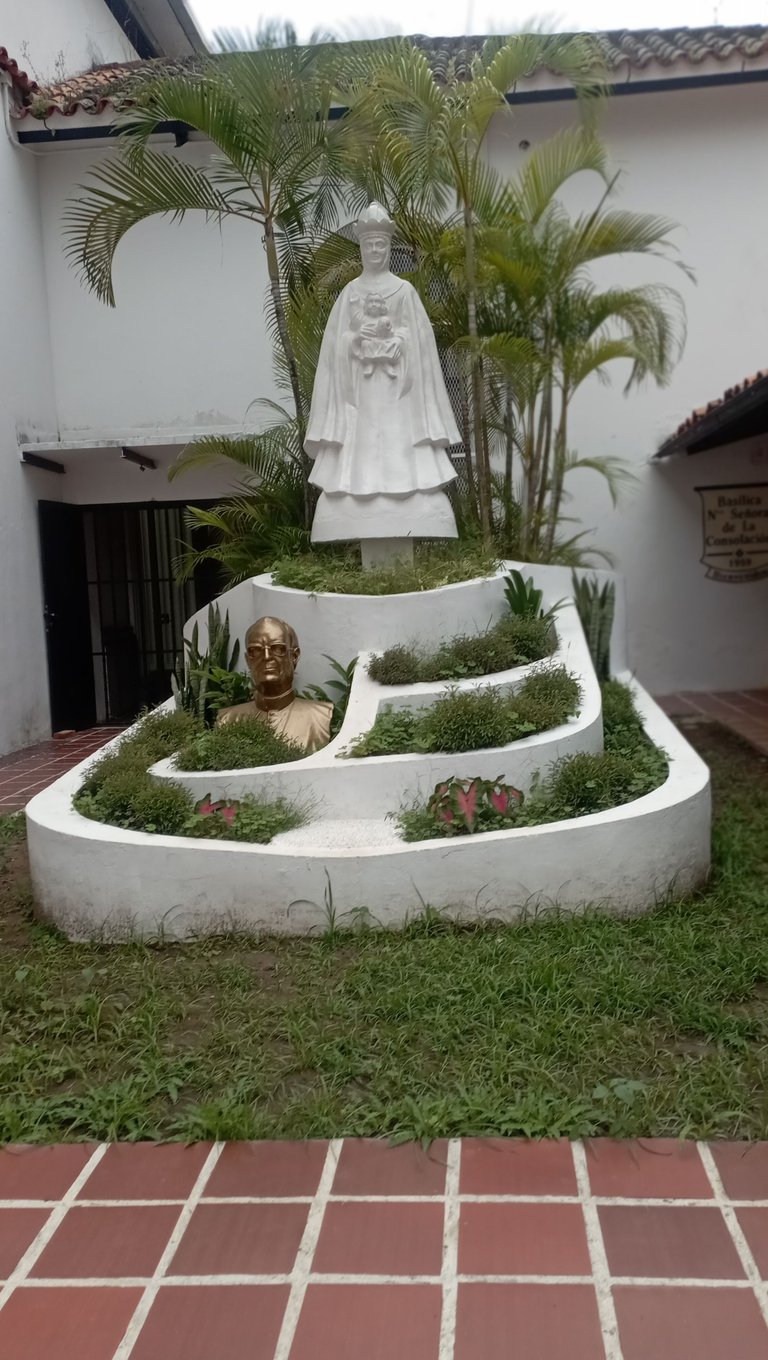
The colonial style corridors forming a bare square that is the central courtyard, enchanted me. The columns and the polished terracotta floor give that contemporary touch to the building.
I noticed that the roof was replaced by plaque, previously the colonial houses had a Bahareque roof which is a mixture of mud and cane. This roof eventually deteriorated and collapsed over the houses.
Although it is now made of cement plate, they keep the same shape and structure simulating the old construction, it even has the tiles on top. This is one of the things I like most about colonial constructions.
The rustic and antique wooden windows with those colored glasses, I loved them. The windows look out from the dining room to the central patio, but they are more to protect the antique wood of the dining room furniture, since everything else is uncovered without walls.

This nice tour with my daughter helped me to discover these pieces of architecture that I had no idea were behind the church. I really liked it and afterwards we didn't want to go out there.
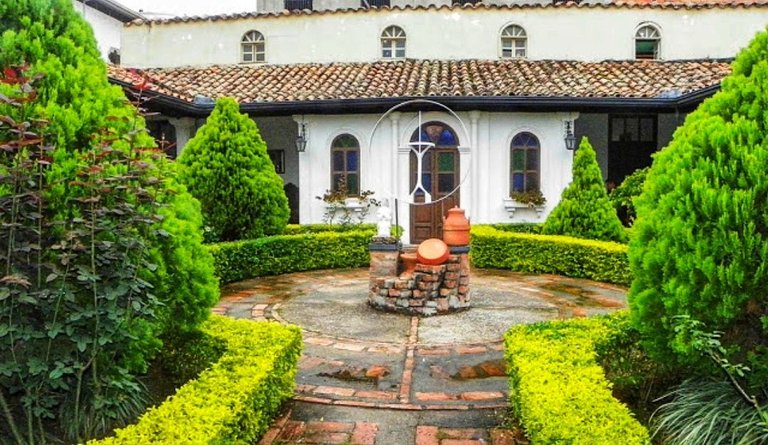
I hope you like this tour. See you next time. Bye!

Visitando el Boulevard de la Virgen de la consolación y la Casa parroquial
Todo comenzó porque mi hija de 4 años quería ir a visitar la iglesia. Es una pequeña muy traviesa y mientras los creyentes estaban en misa, ella corría por toda esta gran iglesia.
Dejaron que pasara para un enorme patio y mientras ella corría yo hice las fotografías para contarles la bonita estructura que está detras de la basílica.
Un Boulevard que antiguamente estaba abierto al público. Las personas creyentes, que en esta ciudad es la mayoría de la población, venían a dejar a la Virgen algunos objetos personales como promesas cumplidas. La cantidad de objetos dio la idea de abrir un museo y este Boulevard es el que resguarda todas esas reliquias en unas vitrinas de cristal.
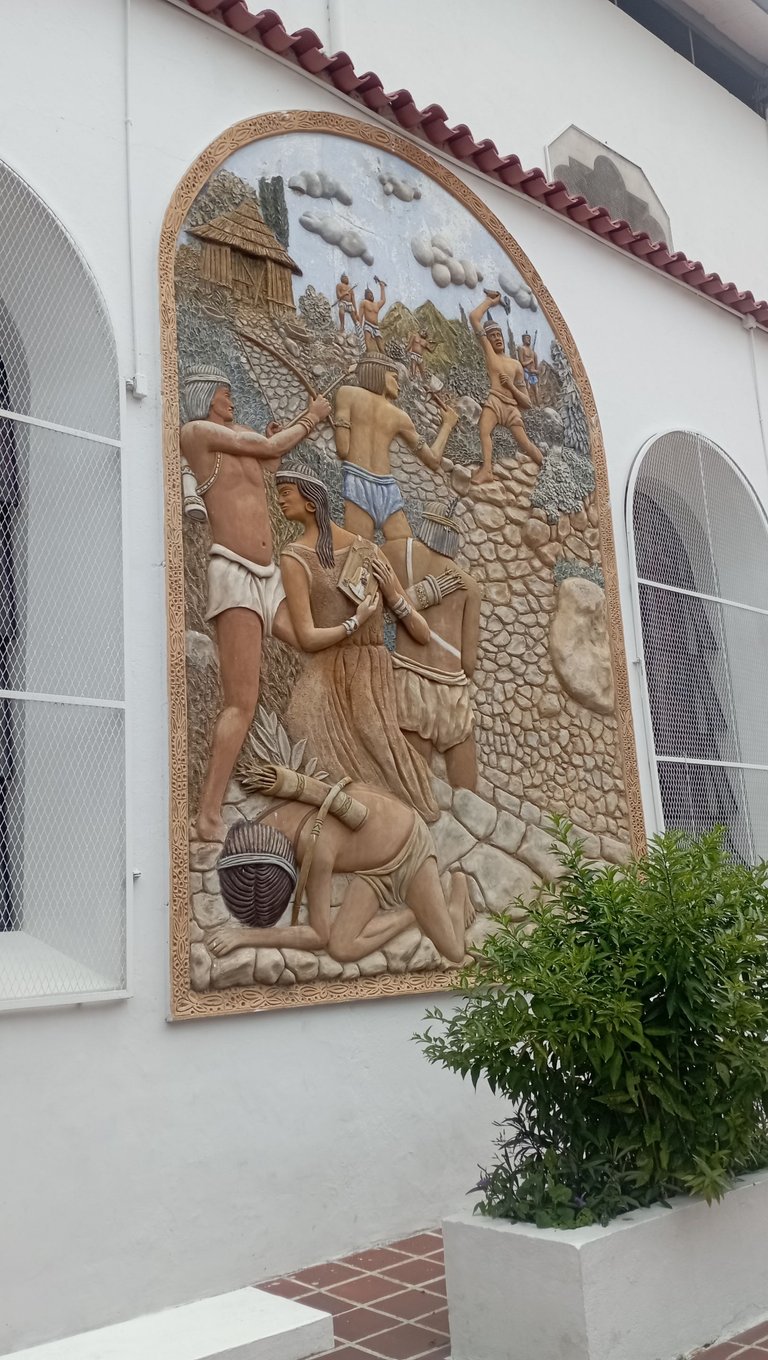 | 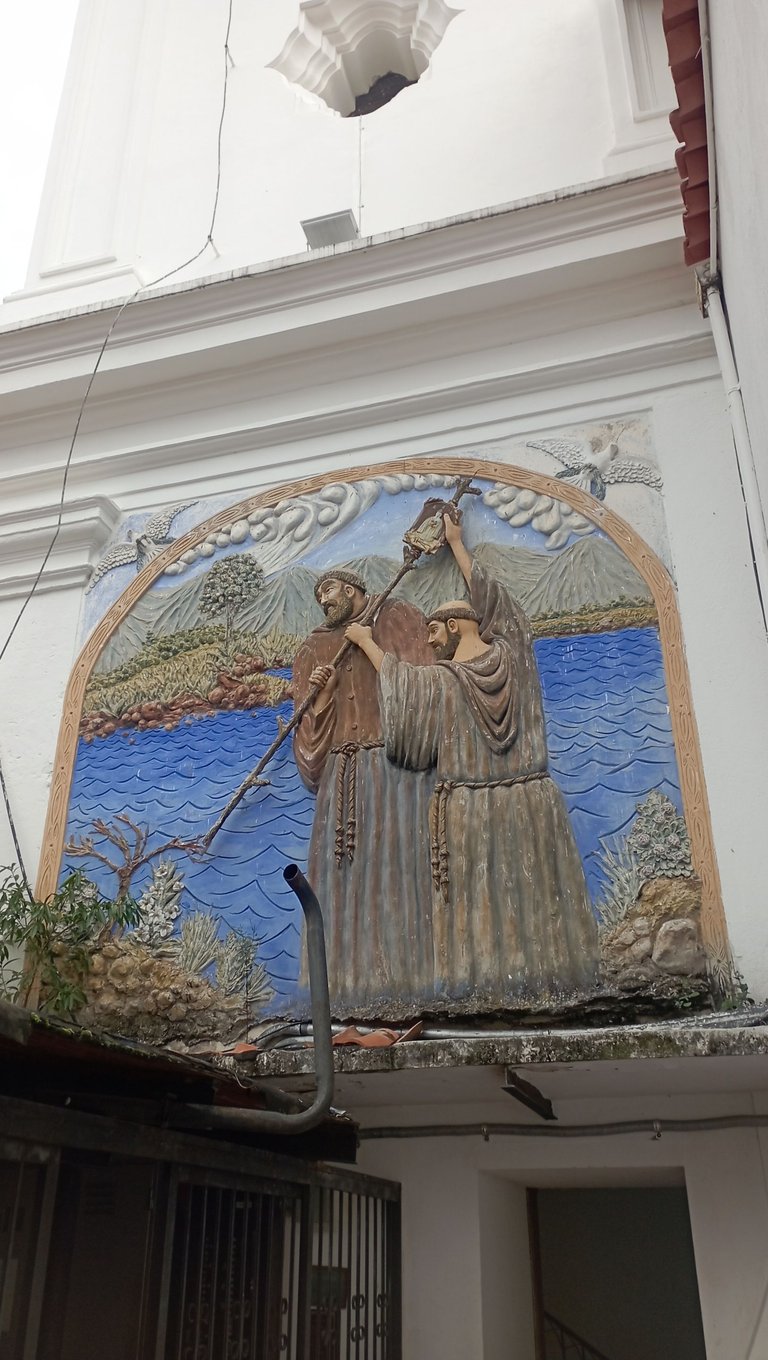 |
|---|
Del lado izquierdo del largo pasillo vemos unos preciosos murales en 3D que representan la historia de como la imágen Virgen apareció en un trozo de madera.
Me encanta de estos murales los cuidados detalles que utilizó el artista para crearlos. Esta obra, en la que se utilizó cabilla fina, cemento, piedra y yeso, es una de las muchas joyas que guarda la Basílica de Táriba.
Las jardineras, la fuente, las vitrinas de cristal en el lado derecho, los faroles, el monumento de la Virgen con el busto del sacerdote que tuvo la iniciativa de crear el Boulevard. Todo se integra tan perfectamente en este lugar.
Bajando un tramo corto de escaleras, llegamos a la casa Parroquial, mi hija estaba buscando el gato de la iglesia que parecía llamarla. Nunca había tenido la oportunidad de entrar a esta bonita casona.
Los corredores al estilo colonial formando un cuadro descubierto que es el patio central, me encantaron. Las columnas y el piso de terracota pulida le dan ese toque contemporáneo a la construcción.
Me di cuenta de que el techo fue sustituido por placa, anteriormente las casas coloniales tenían un techo de Bahareque que es una mezcla de barro y caña. Este techo con el tiempo se deterioraba y se desplomaba sobre las casas.
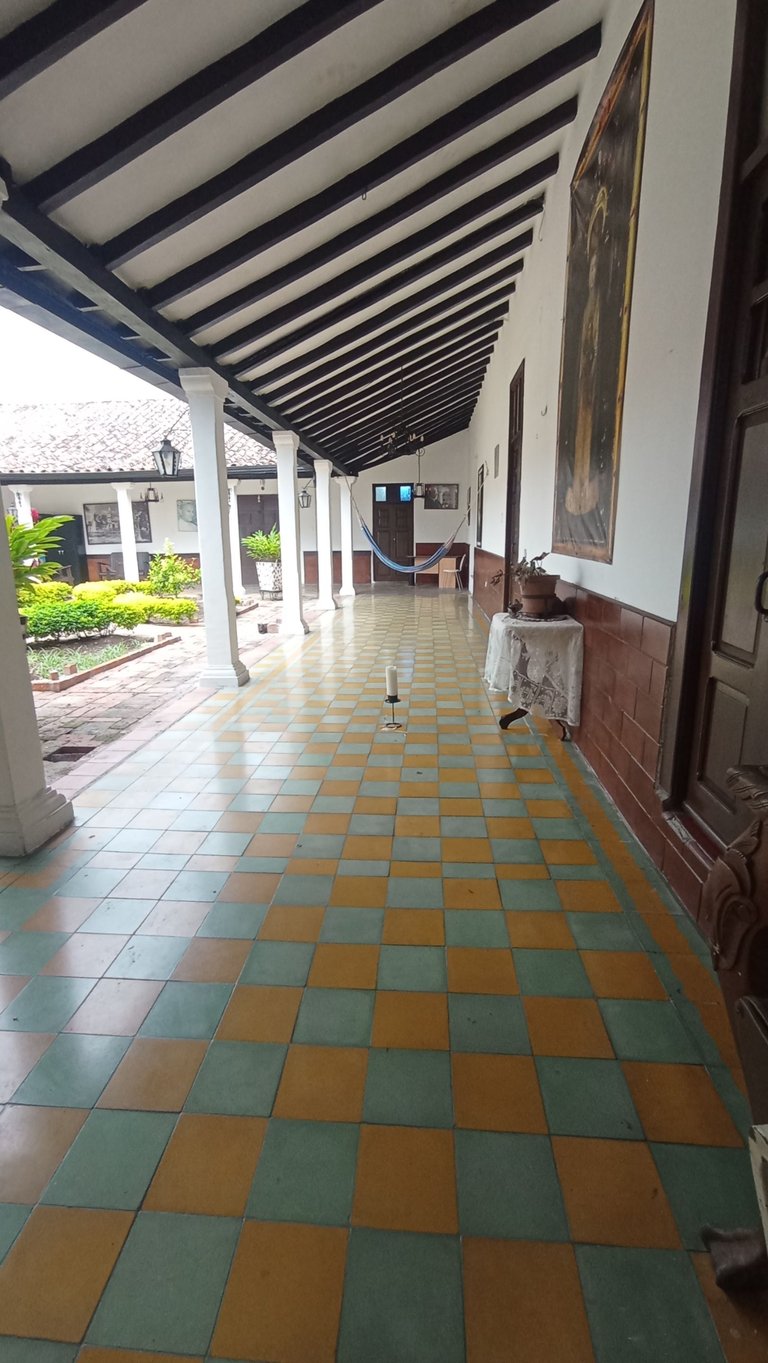
A pesar de que ahora es de placa de cemento, mantienen la misma forma y estructura simulando lo antiguo de la construcción, incluso tiene las tejas encima. Es una de las cosas que más me gusta de las construcciones coloniales.
Las ventanas de madera rústica y antigua con esos vidrios de colores, me encantaron. Las ventanas dan del comedor al patio central, pero son más para resguardar la madera antigua de los muebles del comedor, ya que todo lo demás está al descubierto sin paredes.
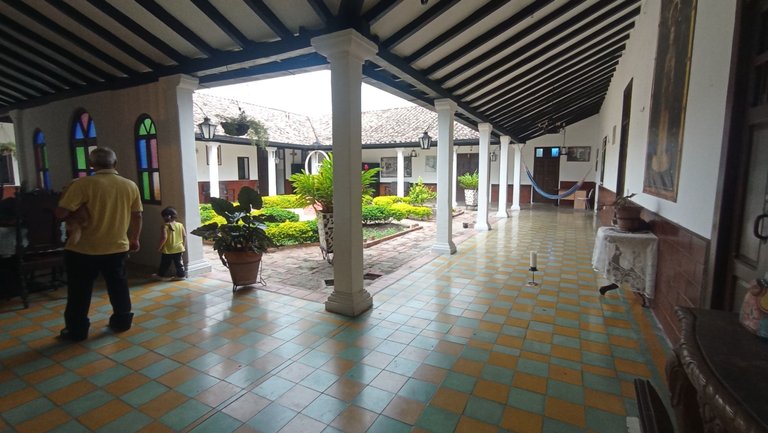
Este bonito recorrido con mi hija me sirvió para descubrir estas piezas de arquitectura que no tenía idea de que estaban detrás de la iglesia. Me gustó mucho y después no queríamos salir allí.
Espero les guste este recorrido. Nos vemos en una próxima oportunidad. Chao!

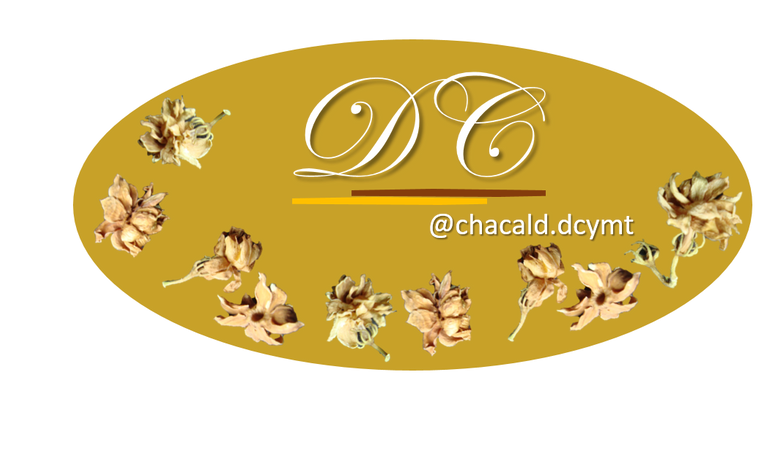
Original content by the author.
Resources: App: Canva / Giphy / Inshot
📷 Redmi 10 Smartphone
Translation done with Deepl.com
✿ All Rights Reserved || © @chacald.dcymt 2024✿
💌 Discord: chacald.dcymt#3549
X: @chacald1
Reddit: chacald
_
Contenido original del autor.
Recursos: App: Canva / Giphy / Inshot
📷 Redmi 10 Smartphone
Traducido con Deepl.com
✿ Todos los Derechos Reservados || © @chacald.dcymt 2024✿
💌 Discord: chacald.dcymt#3549
X: @chacald1
Reddit: chacald
Posted Using InLeo Alpha